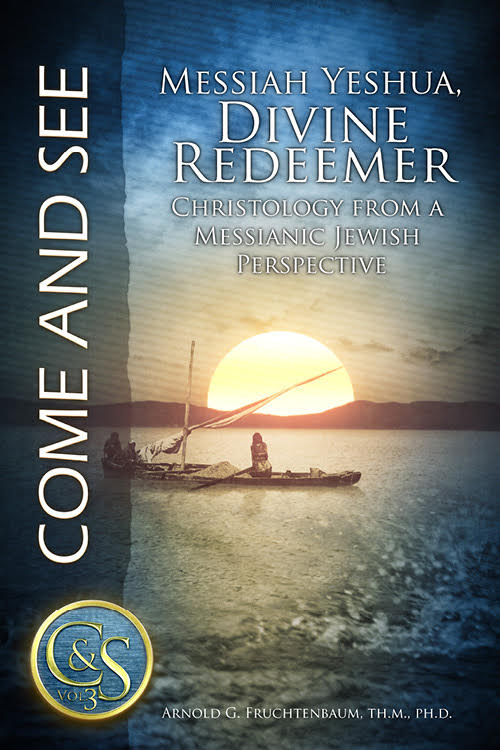Sunday Service 9am & 11am
Wednesday Service 7pm
(210) 920-6502
551 E Nakoma St.
San Antonio, TX 78216
Join a small group to study this sermon with like-minded believers.
1 John 1:1-4
LISTEN. STUDY. APPLY.
Video
Q & A
Audio
Manuscript
Church you may be seated. Today we are beginning a brand new series through the books of 1-3 John, entitled “Love One Another.” We’re going to be working verse-by-verse through these books in the coming months. So if you haven’t done this already, go ahead and take your Bible and turn with me to 1 John 1. This series is a series through all three of the Johannine epistles, 1 John, 2 John, and 3 John. But today, I want to focus strictly on the first of those letters—1 John.
Speaking of 1 John, the church father, Augustine, wrote the following: “This book is very sweet to every healthy Christian heart that savors the bread of God, and it should constantly be in the mind of God’s holy church.” A central theme in Augustine’s writing is love, and it’s not surprising that Augustine loved and emphasized the teaching in 1 John, because one of the great themes of this book is love.
The reformer, John Calvin, said this about 1 John, “This letter is altogether worthy of the spirit of that disciple who, above others, was loved by Christ so that he might exhibit Christ as a friend to us.” Not bad for the disciple whom Jesus once called “The Son of Thunder” (Mark 3:17) who wanted to call down fire from heaven to destroy the Samaritans (Luke 9:54-55). Additionally Martin Luther said, “This is an outstanding epistle.… It has John’s style and manner of expression, so beautifully and gently does it picture Christ to us.”
The famous Baptist preacher from England, Charles Spurgeon, said, “This epistle is specially perfumed with love. As you read it, you cannot help realizing that it was written by a very tender, gentle hand… And yet, when he had written concerning love to Jesus, he was moved to an intense jealousy lest, by any means, the hearts of those to whom he wrote should be turned aside from that dear Lover of their souls who deserved their entire affection.” In other words, John is tender in this book, but he’s also tough. This is a book about love, but it’s not a wimpy love. It’s a love for God and for others that is radically different from the world.
This is a great book. And I’m excited about the opportunity to expound it with you in the next few months, and to drill down on this concept of love. But today, my goals are more modest. Today I want to begin this series by giving you some introductory information about this book.
So let me answer three preliminary questions about this book.
1) Who wrote 1 John? The answer to that question, as many of you know, is John the Apostle.
Not John the Baptist. That’s a different John. But John the Apostle, the son of Zebedee, the person who was fishing on the Sea of Galilee when Jesus came and said to him and his associates, “Follow me, and I will make you fishers of men” (Matt 4:19).
And John, along with his brother James, and Peter, and Andrew left their fishing nets to follow Jesus. And they followed Jesus for three years before his prophesied death and resurrection. And John saw amazing things in that three year period. John was part of Jesus’s inner circle of disciples (Peter, James, and John) who witnessed Jesus’s transfiguration. John saw all of Jesus’s miracles in Galilee firsthand, and he was the only disciple who stayed by Jesus as he was crucified. Jesus even looked down upon John from the cross and told him to take care of his mother, Mary (John 19:26). All of this gave John a unique vantage point from which to write this book of Scripture.
And unlike Paul, who only had a few post-resurrection encounters with Jesus, John lived with Jesus for three years wandering around Judea with him as they preached repentance. Unlike Luke who wrote mainly second-hand information about Jesus (possibly from Mary and Peter among others), John was there when Jesus did his miracles. John was there when Jesus preached his sermons. John was even there when Jesus said Τετέλεσται from the cross (John 19:30). “It is finished.”
Out of all the NT writers, except for maybe Peter, John had the most intimate connection with Jesus. John even identifies himself in his gospel as the “disciple whom Jesus loved” (John 20:2; et al.). He had a close personal relationship with Jesus. And so that’s why he emphasizes so strongly in the first few verses of this letter, “I saw him with my own eyes.” “I heard him with my own ears.” “I touched him with my own hands.” “I’m an eyewitness to these things that really happened, and I testify to the life that was purchased for us by the ‘Word of Life.’” More on that later!
So who wrote this book? John, the Apostle did. And you might ask a follow up question to that?
2) When was 1 John written? Approximately AD 90-95.
Now just so you know, John never calls himself the author of this book, so technically this book is anonymous. And unlike Paul, John doesn’t address his book to anyone or open it with a letter of greeting or anything like that. He just gets into it.
1 That which was from the beginning, which we have heard, which we have seen with our eyes, which we looked upon and have touched with our hands, concerning the word of life…
In other words, forget the pleasantries and greetings and such, let’s go. Let’s get right into it. Coincidently John starts his Gospel in the same way. “In the beginning was the Word, and the Word was with God, and the Word was God…” (John 1:1-2).
Bam! Let’s get into it! No greetings. No pleasantries. Buckle up. Hold on for dear life. “Let’s get right into the meat of what I want to communicate to you.” That’s how John starts his letter.
But even though John never identifies himself in this letter, or in his gospel, the best internal and external evidence points to him as the author. Early church fathers including Clement, Tertullian, Eusebius, and especially Irenaeus attribute this book to the Apostle John. And there is very little debate among conservative Christian scholars that this book was indeed penned by John. So I will refer to the author of this book as John or John the Apostle throughout our series.
But keep this caveat in mind even as I refer to John as the author. And this is true of all of Scripture, whether we know who the human author is or not. All of Scripture was co-authored by the Holy Spirit. And that caveat is important because as we believe here at VBVF, “All Scripture is God-breathed” (2 Tim 3:16) and men spoke “as they were carried along by the Holy Spirit” (2 Pet 1:21).
Now as far as the date of this epistle is concerned, the best internal and external evidence points to John as the author and to a date of approximately 90-95 AD. And that’s important for you to know. It’s important because that’s 60 years after Jesus’s death and resurrection. That’s something like 40 years after Paul wrote his letters to the churches. That’s something like 30 years after Luke wrote Luke and Acts and Matthew wrote the Gospel of Matthew. If Peter and Paul died in the days of Nero, the Roman Emperor, around 68 AD, than this book was written long after Jesus’s other apostles had died off.
And John, who by now is in his eighties (an octogenarian) or maybe even his nineties (a nonagenarian), writes this letter. He’s an old man. And he writes like an old man to his “little children.” He says at the end of this book, “Little children, keep yourself from idols” (1 John 5:21).
In 2 John and 3 John he calls himself, “the elder” (2 John 1; 3 John 1). Not “elder” in the sense of one of the church elders (Greek: πρεσβύτερος) leading a local church. But “elder” in the sense of the longstanding elder in the church community, i.e. the old man apostle who’s still ticking and still leading the church.
And John at this later date was dealing with issues that were different than what Paul and others were dealing with earlier. Church tradition suggests that John spent his latter days at Ephesus ministering to the surrounding churches. If he’s writing to Ephesus, than this is the same church that Paul wrote the book of Ephesians to and also the church that Timothy pastored (see 1 Tim 1:3; 2 Tim 1:18). But this is three decades after those writings! So imagine how much our culture has changed in the last three decades. Bill Clinton was president of the United States three decades ago, and I was still in high school. Things change over time! And issues change.
And one of the prominent issues that John was dealing with is what’s referred to as “Gnosticism” or what people call “proto-Gnosticism” in the church. This was a growing heresy that believed the material universe was evil and the immaterial universe was good. The body was evil. But the spirit was good. It was an expression of Greek dualism that had infiltrated the church. And many of the Greek philosophers decided that since the body was inherently evil you could just indulge your flesh and engage in all kinds of moral filth, and it didn’t matter because the soul was the only thing that lasted forever. And obviously John didn’t believe that. Christianity doesn’t teach that. Jesus didn’t teach that! So John had to address this heresy that had crept into the church.
Some forms of Gnosticism believed that Jesus had not really taken on human flesh because how could something holy like God be clothed in something nasty like flesh. So they advanced the idea that God had floated to earth like some kind of phantom being and had appeared to die on the cross. And back in Paul’s day that was harder to advance as a theory because many at that time had seen and heard Jesus. They knew he wasn’t a phantom being.
But now all those people are dead. So the heresies are gaining ground. John alludes to those who reject Jesus’s incarnation in this letter (cf. 1 John 4:2). And he says explicitly in 2 John 7, “Many deceivers, who do not acknowledge Jesus Christ as coming in the flesh, have gone out into the world.” And so, part of John’s message here is to the false teachers saying, “Don’t you dare! Don’t you dare deny Christ’s bodily incarnation.” “I saw him with my own eyes.” “I touched him with these hands.” “He was not a phantom being” “He was God in the flesh.” “So take that, you gnostic heretics… I may be an old man,” says John, “but I know what these eyes saw. And Jesus was no phantom being.”
And this is important for us too because we live in a day when the historicity of Jesus’s death and resurrection are constantly being called into question. We don’t have eyewitness testimony in the twenty-first century. And so people are constantly trying to mythologize and relativize the truths of the Scripture. And for us in the twenty-first century, John’s letter speaks loud and clear. He speaks as a first-hand testimony concerning Christ. And the question for us is this—are we going to believe him or reject him? Are we going to take him at his word, or are we going to believe the dissenting voices that have tried to marginalize Christ for twenty centuries?
And that leads into my third preliminary question:
3) Why Study 1 John?
Why Study 1 John? Some of you might say, “Well, it’s God’s Word! You know that, Pastor Tony! Why not study it?” And of course, that’s correct. “All Scripture is breathed out by God and profitable for teaching, for reproof, for correction, and for training in righteousness, that the man of God may be complete, equipped for every good work” (2 Tim 3:16-17).
But beyond that more general reason for studying any section of Scripture, why study 1 John? Why this book? Well here’s another reason. Like I said earlier we live in a skeptical age where everything that Jesus did and said is called into question. And there’s a kind of Gnosticism in the twenty-first century that is a powerful force in our world. Admittedly it’s different from the Gnosticism in John’s day, but it’s attempting similar things. Because here’s what I’m noticing right now… even among agnostics and skeptics in our day, there seems to be more and more people that are embracing a kind of spirituality and mysticism that is far removed from Christianity. And I understand that, because there is this spiritual hunger inside of every human heart, and people are seeking to fill that. But they don’t want to fill it with the truth about Christ or the Christian faith, because Christianity in their minds is weighed down with encumbrances like holiness and obedience.
I remember hearing in Al Mohler’s podcast “The Briefing” once about this thing called “Pagan Pride Day.” It was this event in Louisville that drew about 650 people. These are members of the American neo-pagan community, which includes adherents to Wicca, Druidism and Asatru, among other polytheistic and earth-based religions. I think groups like this will continue to grow in popularity in our country, because it fills a God-shaped hole in the hearts of humans without having to be accountable to a sovereign and holy God. And that’s what we want as Americans. We want spirituality without God. We want transcendence without a call to holiness. And what’s happening is that people in our country today are embracing a new-age mysticism that is pushing Christians and Christianity farther to the fringes of society.
And more and more doubts are being heaped upon the historical truths of the Scriptures. And even among Christians, I think there’s this nagging doubt that surfaces from time to time that asks, “Is it all really true?” “Did it really happen?” “Did God’s Son really take on human flesh and die in my place?”
And John, in this letter, wants to speak to that doubt in your heart and tell you, “Yes! It really happened!” “Yes! Jesus Christ came in the flesh!” “I saw him with my own eyes.” “I touched him with my own hands.” “Your faith is not some ambiguous notion of possibility.” “Your faith is based upon eyewitness testimony and historical realities. So don’t ever forget that!” “And don’t let modern day Gnostics and skeptics persuade you otherwise.”
Listen, church, our faith is based upon historical reality. Don’t ever forget that! We need that reminder in this day. We need to hear this from the Apostle John.
Here’s another reason I think we need to study this book. And this is coming from your pastor to you the people of VBVF, San Antonio. There are a number of themes in this book that I believe we really need to hear and appropriate as a church right now. One of those themes is the title of this series, “Love One Another.” What does that mean? What does that look like in the context of our families and our church and the outside world that is growing increasingly hostile to Christians? Why do we need to love each other? And how do we love each other? We’re going to spend a lot of time talking about that in the coming months.
Here are some other themes that are prevalent in this book. Write these down in your notes.
1) Assurance of Salvation
Tim Keller calls “Assurance of Salvation,” not just “knowing Christ” but “knowing that you know Christ.” That’s a good way to put it. How is a person saved, and how does a person know that they are saved? We’ll cover that in the coming weeks.
John writes in 1 John 5:13, “I write these things to you who believe in the name of the Son of God, that you may know that you have eternal life.” I run across people all the time in pastoral ministry who struggle with assurance of salvation. And one of the places that I consistently point them to is 1 John. John specifically wrote this book and the ideas captured in it so that we might have assurance of salvation and so that we might know that we have eternal life. That makes this book extremely valuable practically.
2) Walking in the Light
John writes, “But if we walk in the light, as he is in the light, we have fellowship with one another, and the blood of Jesus his Son cleanses us from all sin” (1:7). What does it mean to walk in the light and how does a person walk in the light? And how is light differentiated from darkness? We’ll get into that in this series.
3) Worldliness vs. Godliness
This is going to be a difficult one for most of us, because what we’ll see here demanded by the Apostle John is a clean break from the world… and an expectation of us that we love not the world. 1 John 2:15 says, “Do not love the world or the things in the world. If anyone loves the world, the love of the Father is not in him.” What does that look like in the life of a Christian—not loving the world? And how is that different than loving the world in the way that God loved the world and sent his son to die for the world according to John 3:16? We’ll talk more about this in the days ahead.
One more theme. [There are possibly others that you could come up with, but I think these four things are primary.]
4) Loving One Another in the Body of Christ
1 John 3:23 says, “And this is his commandment, that we believe in the name of his Son Jesus Christ and love one another, just as he has commanded us.” 1 John 4:7 says, “Beloved, let us love one another, for love is from God, and whoever loves has been born of God and knows God.” 1 John 4:11-12 says, “Beloved, if God so loved us, we also ought to love one another. No one has ever seen God; if we love one another, God abides in us and his love is perfected in us.”
We’ll spend some time in this series talking about love in different settings: loving your spouse, your children, your neighbor, etc. But the most important love that John emphasizes in this book is love inside the church. Do you love your brother? What does that look like? And how do we do that? And why do we do that? We’ll get into that.
-----------------------------------------------------------------------------------------
Alright, so with that introduction, let’s get started in verse 1. In the time that we have left, I want to cover the first four verses of this book. And let’s start here. I’ll give you three things that the Word of Life came to earth to offer you. Here’s the first thing—eternal life.
1) The Word of Life came to offer you eternal life (1:1-2)
John writes this… and he writes these first few words like he was shot out of a canon…
1 That which was from the beginning, which we have heard, which we have seen with our eyes, which we looked upon and have touched with our hands, concerning the word of life—
Now what in the world could be both “from the beginning” and “touched with hands”? How is that possible? If it is from the beginning, that means it’s eternal. It’s otherworldly. And yet it has been touched. It has been seen and heard. What is that?
Well the “that” isn’t really a “that.” It’s a who! It’s the Word of Life. And that Word is the second person of the Trinity, who is revealed as Jesus in the NT. And this isn’t the first time that John has referenced the “Word.”
John wrote, “In the beginning was the Word, and the Word was with God, and the Word was God…” (John 1:1-2). What does John mean by “the word of Life” in 1 John 1:1? Well the answer is essentially the same as what John means by “the Word” in the first few verses of the gospel of John. In John 1:14, John writes, “And the Word became flesh and dwelt among us, and we have seen his glory, glory as of the only Son from the Father, full of grace and truth” (John 1:14). Who was the Word that became flesh and dwelt among us? It was Jesus.
Who was the word from the beginning who was with God and who was God? It was Jesus. Now in John’s letter he writes similarly about Jesus saying, “that which was from the beginning…” which is an obvious echo to John 1:1 and an obvious echo to Genesis 1:1 “in the beginning, God.”
1 That which was from the beginning, which we have heard, which we have seen with our eyes, which we looked upon and have touched with our hands, concerning the word of life—
Why does John call Jesus, not just the Word, but the “Word of Life?” Because Christ the Word is the source of life. Because Christ the Word is the source of our eternal life! Because Christ, the Word, said about himself, “I am the way, the truth, and the life” (John 14:6). Jesus told Martha, “I am the resurrection and the life” (John 11:25).
Christ is from the beginning. He is God eternal. He existed in eternity past. He was never created, and there was never a time when Christ was not. He is the Word, and he is the life. He’s the Word of life. One pastor said it this way, “Jesus was the only man who had a heavenly Father, but no heavenly mother; who had an earthly mother but no earthly father; who was older than his mother and who was as old as his Father.”
But in the fullness of time Christ took on flesh. And the disciples, John included, saw him and heard him and touched him. After his resurrection, Thomas saw the nail scares in his hands and side. He is the Word (the logos) who became flesh and lived among us.
And verse 2 alludes to that.
2 the life [i.e. “the Word of Life”] was made manifest, and we have seen it, and testify to it and proclaim to you the eternal life, which was with the Father and was made manifest to us—
This is amazing Christology! And this is amazing soteriology! What John is saying here is that Christ is God. And Christ took on human life. He was incarnated into flesh. And John says we saw him. We touched him. And Christ, because of his death, offers us eternal life. Even though he died, he conquered death, and subsequently he offers us victory over death.
John is packing a lot of theologically potent statements into a few verses! Like I said already, he’s not wasting time with any greetings or pleasantries, he just gets right into it! Christ is God from the beginning. Christ took on human life. Christ offers us eternal life.
In other words, “The Word of Life came to offer you eternal life.” So here’s the question. This is the most important question that anyone will ever ask you. You’re eternity literally hinges on your answer to this question. Are you ready for it? Here it is: Do you have eternal life? If you have Christ, you have eternal life. If you don’t have Christ you don’t have eternal life. It’s that simple. No Christ, no life. Know Christ, know life.
And here’s the question you have to ask yourself. I’d be remiss if I didn’t ask this question of you today. Have you by faith confessed your sins before a righteous God and embraced Jesus Christ as your Savior? That’s what Jesus came to earth to do. He came to die for your sins. He came to be resurrected from the grave and conquer sin. And he’s coming back soon to judge the quick and the dead and claim those who belong to him and have eternal life. Do you have eternal life, church? If you don’t then, why not? Salvation is a matter of repentance and faith. You can’t earn that gift.
If you do have eternal life, then rejoice. What could possibly happen to you in this world that could steal your joy and keep you from rejoicing? This world’s not our home. Right? And soon we’ll be going home to be with the Lord.
I remember several years ago there was this mass murderer at a community college in Oregon who was targeting Christians. And at that shooting, there was a witness named Kortney Moore who said the killer was asking people to stand up and state their religion before shooting them. According to the father of Anastasia Boylan, an 18-year-old freshman who was shot and had to undergo surgery to remove a bullet from her spine, the killer told the victims, “If you’re a Christian stand up.” And [after] they [stood up] he said, “Good, because you’re a Christian, you’re going to see God in just about one second.” And then he shot and killed them. What an amazing statement of truth from such a vile source!
Those kinds of tragedies have been committed in our world for centuries and I believe they will only increase and intensify before Christ returns. And I don’t want to trivialize those heinous acts by mentioning a silver lining or anything like that. But the truth of the matter is this. Death for those who know Jesus Christ as their savior, death is not the end. Because one millisecond after we die we enter into the presence of God, and we will enjoy perfect and unabated communion with him forever.
If someone came into your office space tomorrow, or if someone came by your school and asked you that question, do you have assurance that one millisecond after your death you would go on into the presence of the Lord? Christ died to give us that assurance. Christ died to put an end to death. And for those who know him death is not the end.
-----------------------------------------------------------------------------------------
So Christ, The Word of Life, came to offer us eternal life. Write this down as well … if that’s all that Christ offered us, that would be enough. We don’t even deserve that! But God in his grace offers us something else. Secondly,
2) The Word of Life came to offer you fellowship (1:3)
Look with me at verse 3.
3 that which we have seen and heard we proclaim also to you, so that you too may have fellowship (κοινωνία) with us; and indeed our fellowship is with the Father and with his Son Jesus Christ.
We have fellowship with each other and with Jesus Christ and even with God the Father when we receive the free gift of eternal life that God gives us. We may not be able to see him with our eyes, like John did. We may not be able to hear him with our ears, not yet anyway, but we can still have fellowship with him.
By the way, the verb for “may have” here is a present tense, subjunctive mood, verb. The present tense indicates that we can have this now in real time. The subjunctive mood indicates that we “may” have this. The subjunctive mood indicates possibility. This may be ours. This may be yours. And the condition is based on faith. If you have faith in Christ, you have fellowship. “No faith, no fellowship. Know faith, know fellowship.”
Obviously this fellowship with God will be perfected in eternity. It will be complete and unimpeded and undistracted in eternity. But we get a foretaste of that now. We get fellowship with the Father now, and we can cry out “Abba, Father” now. We can pray to him and grow in our relationship with him. We can have peace with him, and we can enjoy all the benefits of sonship and relationship that our big brother Jesus Christ has with the Father.
Also we get fellowship with Jesus Christ too. Look at the end of verse 3.
3 … and indeed our fellowship is with the Father and with his Son Jesus Christ.
In fact, Jesus has placed his Holy Spirit inside of us as an outworking of that fellowship. And the Holy Spirit is able to guide us and direct us in our actions to bring forth the fruit of the Spirit. We can grow in our relationship with Christ, and we can and should be growing in our imitation of him. And even in our suffering, we have fellowship with Christ. Peter wrote, “But rejoice insofar as you share Christ’s sufferings, that you may also rejoice and be glad when his glory is revealed” (1 Pet 4:16).
And John also says we have fellowship with him meaning we have fellowship in the Body of Christ among believers, not just current believers in our current church, but also 2000 years of Christians who since the time of Christ have been working towards the same goal.
By the way, fellowship is an often misunderstood concept. It’s not parties and potlucks and church get-togethers. Or should I say it’s not only parties, potlucks, and church get-togethers. The biblical idea of κοινωνία-fellowship has the idea of sharing in community. In the community of Christ you have relationship and fellowship and camaraderie as you work towards the same goals together.
When you receive Christ as your Savior, you become part of a community. You become part of the family of God. And there’s something glorious and precious about that. Ever since I was a kid, I have relished in the family of God that God has placed me in. In every church I’ve been a part of, I could sense the pleasure of God and the preciousness of my faith community. No Kiwanis club can offer that. No bar, no stadium, no office, no political party can offer that. Not like God offers it here.
-----------------------------------------------------------------------------------------
We’ll talk more about the fellowship of God in the church community in the weeks to come, and how we can “Love One Another” in that context. But write this down under #3. Here’s a third thing that the Word of Life came to offer you. He came to offer you eternal life. He came to offer you fellowship. And he came to offer you joy.
3) The Word of Life came to offer you joy (1:4)
John writes in verse 4.
4 And we are writing these things so that our joy may be complete.
“Our”? Who’s the “our” in that verse? Well, I take that “our” to mean both John as the spiritual leader of the church community, but also the church community itself. In other words John is writing about how Christ has come, and John is testifying about how Christ offers salvation to us, but also as part of that offer of salvation, Christ offers joy to the faithful recipient of God’s grace. No Jesus. No Joy. Know Jesus. Know Joy. No “Word of Life,” no Joy. Know the Word of Life. Know Joy.
And by the way, church, Joy is not the same as fickle and fleeting happiness. Happiness comes and goes. Happiness as a kind of glee or merriment is dependent on your circumstances. Joy is deeper than that. Joy is greater than that. Joy can be maintained even in the most difficult of circumstances for the Christian.
G.K. Chesterton called joy the “gigantic secret of the Christian.” Billy Sunday said once, “If you have no joy in your religion, there’s a leak in your Christianity somewhere.” How is your joy Christian? How’s that fruit of the spirit called joy that God said would be an inevitable product of saving faith? If your joy is easily stolen from you by circumstances and current events, that’s not joy. That’s emotional frothiness. That’s fickle and fleeting happiness. Christ offers us something better than that.
Some of you know that the great reformer Martin Luther married a runaway nun named Katharina von Bora. And Katie was every bit as formidable and obstinate as her husband. She wasn’t afraid to go toe to toe with Luther, and Luther loved her for it.
Well once, Martin Luther was in a depressive mood because of some things that were happening in his ministry. And Katie got fed up with it. So she dressed in all black like she was in mourning about to go to a funeral. And when Luther saw her in that getup, he said, “What are you doing? Who died?” And she said, “Haven’t you heard? God has died!” And Luther said, “What are you talking about? What foolishness?” And Katie responded, “It’s true… God must have died, or Doctor Luther would not be so sorrowful.” And to Luther’s credit, he snapped out of his depression thanks to his wife’s soft and comical rebuke.
Here’s the reality of the situation. What could possibly happen in this world that could keep us depressed? Yes, I know, life is hard. And we go through hard times. Nobody knew that better than Luther. But no matter what we experience in this world, God has not died. In fact, God the Son has died in order to offer us eternal life. And in light of that life, and in light of God’s Son for us, what could possibly steal our joy from us. The Word of Life (Christ Jesus) has come to offer us eternal life. He has come to offer us fellowship. And he has come to offer us joy—“joy unspeakable and full of glory” (1 Peter 1:8, KJV).
-----------------------------------------------------------------------------------------
You might say, “I want to know more about that, Pastor Tony.” “I want to know more about that joy. And I want to know more about fellowship. And more about eternal life. And more about love, and how we can love one another. And I want to know more about Jesus’s deity and humanity.” Alright. There’s more. Come back next week, and we’ll see more of that in 1 John.

Taught by Tony Caffey
Senior Pastor of Verse By Verse Fellowship
1 John
LATEST SERMONS
BROWSE THE LATEST SERMONS










